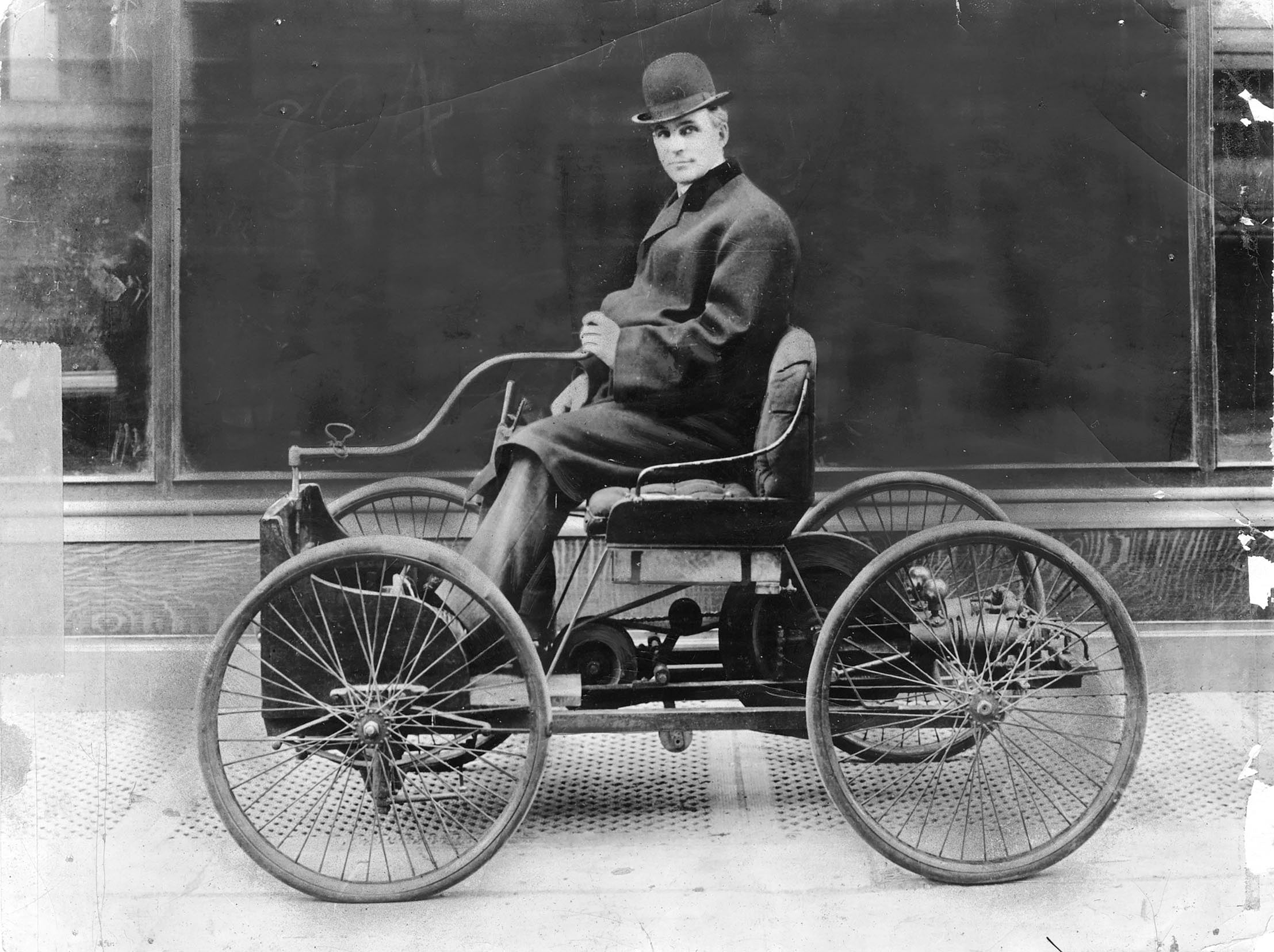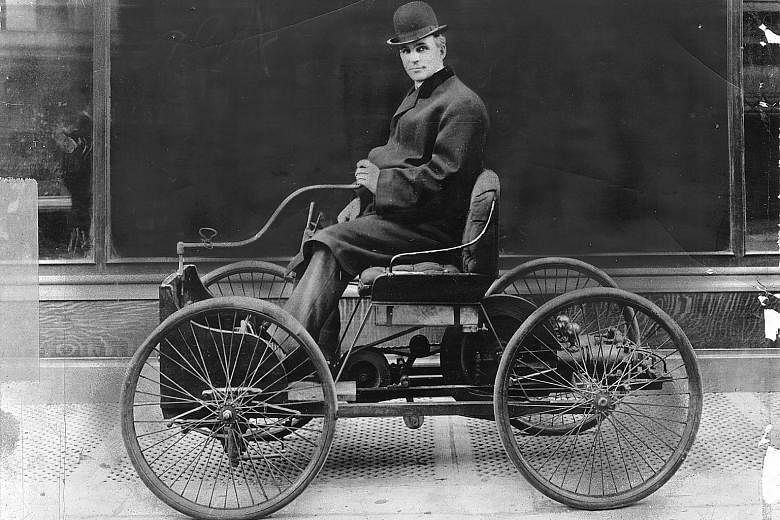We start our cars and drive off daily without pausing to wonder what it would have been like had they not been invented.
Our children go to libraries to study and enrich their minds, as if the institution is a natural part of society. The present generation may not realise that such "necessities" would not exist but for a few great men in the past century.
Among them were Cornelius Vanderbilt, John Rockefeller, Henry Ford and Andrew Carnegie. These pioneer American industrialists pushed mankind forward by creating things that made the world a better place to live in.
As Asean marks its 50th anniversary this year, businesses in this part of the world should reflect on the challenges facing global trade. They should see how they can employ strategies that these early American entrepreneurs used to ride on the next wave of growth.
COURAGE TO CHANGE
It takes guts to change one's thriving business to something new that has to be built from scratch.
On that score, few can match the courage of shipping magnate Cornelius Vanderbilt who did a major turnaround by trading in all his ships for trains.
He did that at the age of 70, after having spent a lifetime building his shipping empire, which he had started with just a single sailboat.
He could have retired comfortably because his business of shipping foreigners into America during the great Gold Rush was thriving. But the opportunity to develop a land-based rail network on the hinterland - where gold was found - was hard to resist.
He was so adept in making the change that people thought he had planned everything in advance. But the real genius was in his ability to seize good opportunities, and his foresight in investing in a new business with wealth generated by the old business.

This is something worth learning especially when many traditional businesses, even lucrative ones, also face the risk of obsolescence in today's world. In Vanderbilt's case, his effort helped to change the geography of America by spurring the growth of new towns and cities, by moving people and goods around faster and to more places.
Indirectly, it gave rise to another American giant, John D. Rockefeller, who used the railroads to expand his oil empire.
DECIDE YOUR OWN FATE
Rockefeller gained good insights on how to calculate costs and keep accounts as a teenager when he worked as a clerk.
He understood the need to keep operating costs low, and this drove him to always plan for contingencies in later years, when he started a kerosene refinery business. He took pains to keep his price low as the only reason why people would use kerosene for lamps then was if it was cheaper than whale oil.
To create cheaper products, he made his plant more efficient. Indeed, his oil refinery was possibly the first in the world to achieve almost maximum efficiency.
He used by-products from his plant to fuel his machines and sold the rest to other manufacturers.
He even hired his own workers to build oil pipelines and barrels, thus achieving huge cost savings.
It was a brilliant move not to depend on others for key parts of his business as, when the railway operators sought to raise prices he could use his own inter-state pipes to move his products around. Had he not foreseen and prepared for the threat of price increases, his business could have folded.
Rockefeller also never relied on a single source for his business and made pacts with other transport operators so that he could not be held hostage by any one.
Also, instead of building plants from scratch, he expanded his business by buying out other plants, which could be remodelled and put into production immediately.
In barely 20 years, he had almost absolute dominance of the country's oil business. While his empire was later broken up by anti-trust law, today's oil industry owed it to Rockefeller for his courage to take charge, and not be dependent on others.
THINK CUSTOMER AND EMPLOYEE
Henry Ford did that with cars. He didn't invent them but was the first to create a simplified no-frills model that even workers and farmers could buy.
His Ford Model T cost US$825 in 1908 (about US$22,000 or close to S$30,000 today). As demand shot up, the price fell by almost half, enabling a whole generation of people to drive.
He also astonished the market when he doubled the salary of his workers in a bid to attract the best talent. He knew that if he had more skilled workers in his factory, he could actually hire fewer people, as good workers could do more.
Not only that, the shrewd entrepreneur knew that if his own workers earned more, they could buy his cars, and thus increase sales.
In addition, he was also an early champion of the five-day work week. He believed that a shorter week could drive up productivity as workers then would put in more effort to complete the assembly of cars in a shorter time.
This strategy had business in mind, too: If workers had more leisure time, they would have more time to buy and consume more goods and this, in turn, would help the economy.
In short, before you sell something, make sure your product is so desirable that even your employees aspire to own it.
It is easier to market a product that you like than to sell something you won't buy yourself.
LEGACY THAT LASTS
A country is great only because of its people and one wonders what America would be like if it didn't have an extensive network of libraries and colleges to produce educated, enlightened citizens.
In short, imagine an America without Andrew Carnegie.
When he was 14, local businessman James Anderson opened his personal library of 400 books to him and other boys.
Young Carnegie read voraciously and it was this that turned him into an intelligent self-made man.
He was so grateful to Anderson that he vowed that "if wealth ever came to me, I will see to it that other poor boys might receive opportunities similar to those for which we were indebted to the noble man".
Carnegie eventually built his empire in steel by making available a quality material that enabled the nation to build bridges and skyscrapers.
His biggest contribution to mankind, however, was his effort in building knowledge - he made good on his promise to enable children to learn, by funding over 3,000 public libraries not just in America but also various English-speaking countries.
His investment in education was legendary - he spent the equivalent of more than US$80 billion in today's value on libraries, universities and education-related projects to pursue what he called "the noblest use of wealth, by contributing to enlightenment and the joys of the mind".
He believed it was a disgrace for anyone to die rich and his dictum was:
- To spend the first third of one's life getting well educated.
- To spend the next third making all the money one can.
- To spend the last third giving it all away for worthwhile causes.
More than a century after his death, Carnegie's name is held in high regard when memories of thousands of other rich people of his time have faded into oblivion.
A final and most important life lesson that we can learn from these great men is that the things that we do for ourselves will die with us, while the things that we do for others will live on forever.
- The writer, a former Straits Times journalist, is senior vice-president (business development) at Singapore Press Holdings' English/ Malay / Tamil Media Group.

